Animals
-
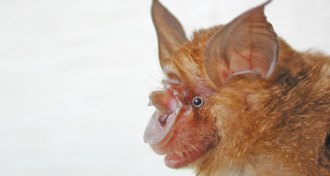 Genetics
GeneticsBats in China carry all the ingredients to make a new SARS virus
Viruses infecting bats could recombine to re-create SARS.
-
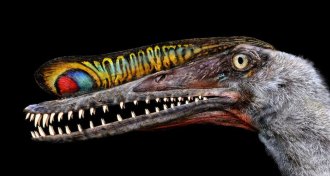 Animals
AnimalsJackpot of fossilized pterosaur eggs unearthed in China
A treasure trove of pterosaur eggs and embryos gives tantalizing clues to the winged reptile’s early development.
-
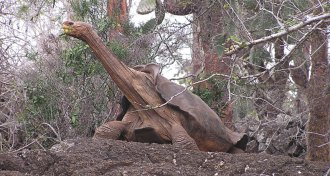 Animals
AnimalsStudying giant tortoise flips without tipping the animals over is a delicate business
Giant tortoise shells go domed or saddlebacked, but which is better when navigating treacherous ground?
By Susan Milius -
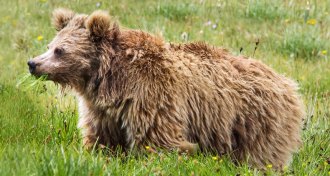 Animals
AnimalsHere’s yet more evidence that the mythical yeti was probably a bear
A more complete genetic analysis amps up the evidence that the legendary creatures known as yetis are actually bears.
-
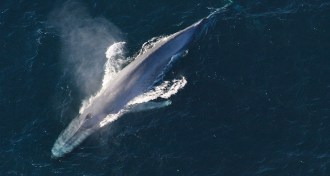 Animals
AnimalsMost blue whales are ‘righties,’ except for this one move
Though many blue whales tend to be “right-handed” when hunting for krill, one specific barrel roll move requires a lefty twist.
-
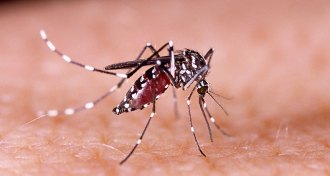 Animals
AnimalsRough lessons can lessen the pull of human scent on a mosquito
A form of aversion therapy for mosquitoes shows they can connect human scent to a bad experience.
By Susan Milius -
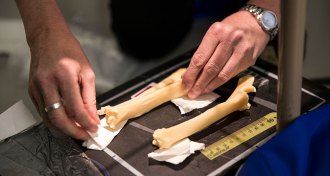 Genetics
GeneticsBones show Dolly’s arthritis was normal for a sheep her age
Cloning didn’t cause the famous sheep to age prematurely.
-
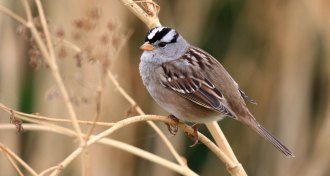 Animals
AnimalsSeeds coated in a common pesticide might affect birds’ migration
Eating small amounts of a neonicotinoid pesticide can disorient white-crowned sparrows.
-
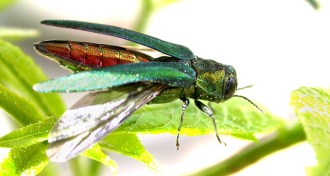 Plants
PlantsThe dietary habits of the emerald ash borer beetle are complicated
Tests answer some questions about the emerald ash borer’s hidden taste for olive and fringe trees.
By Susan Milius -
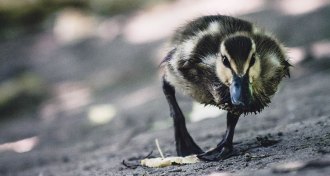 Animals
AnimalsEven a tiny oil spill spells bad news for birds
Just a small amount of crude can make birds less active.
-
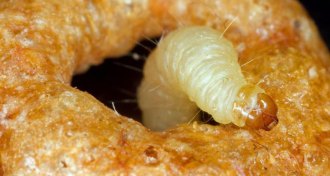 Animals
AnimalsThe key to breaking down plastic may be in caterpillars’ guts
Caterpillars that feast on plastic have different gut microbes than those that eat a grain-based diet.
-
 Animals
AnimalsFluorescence could help diagnose sick corals
Diseased corals fluoresce less than healthy corals, and a new analysis technique can help spot the reduced glow.